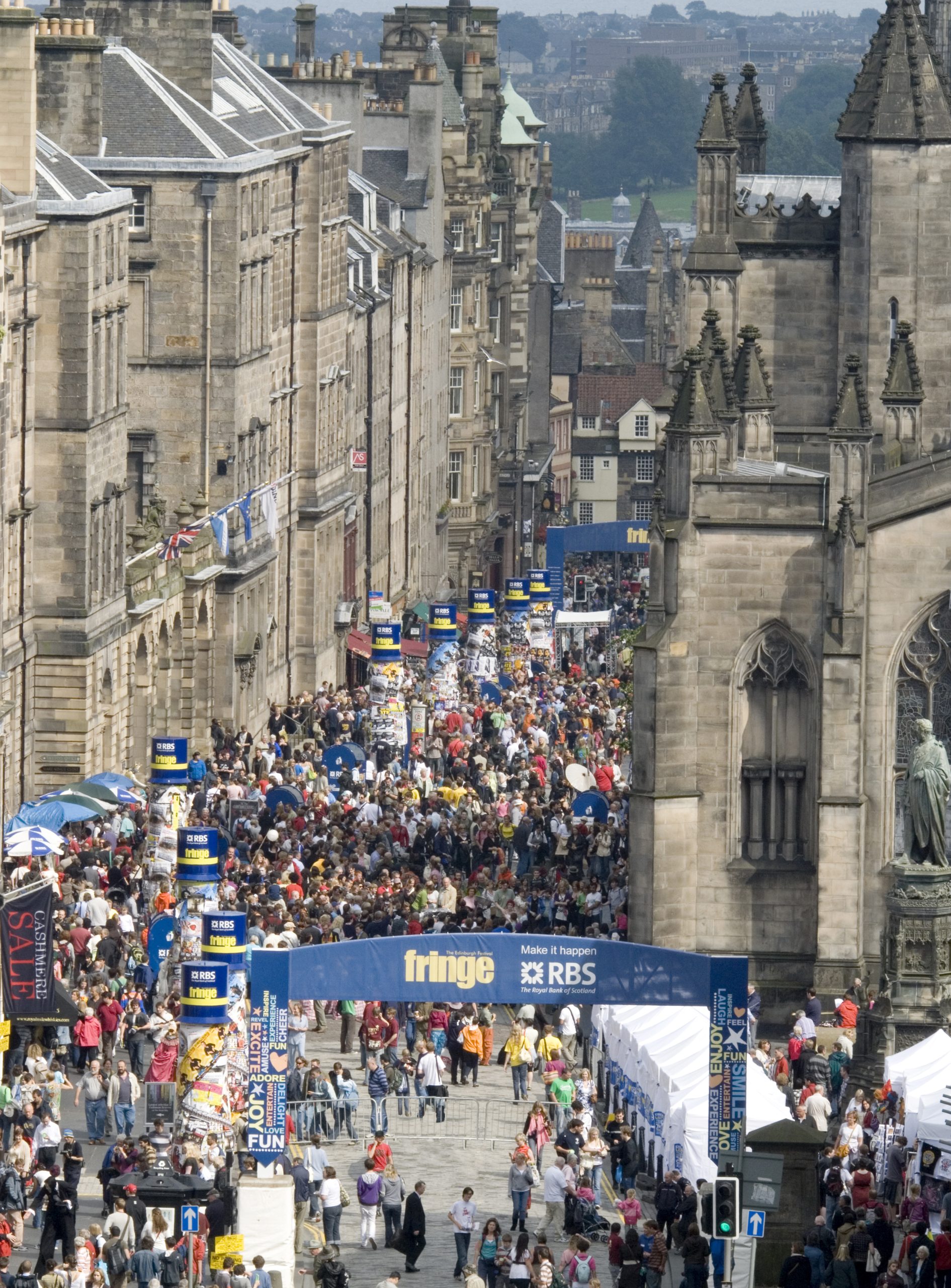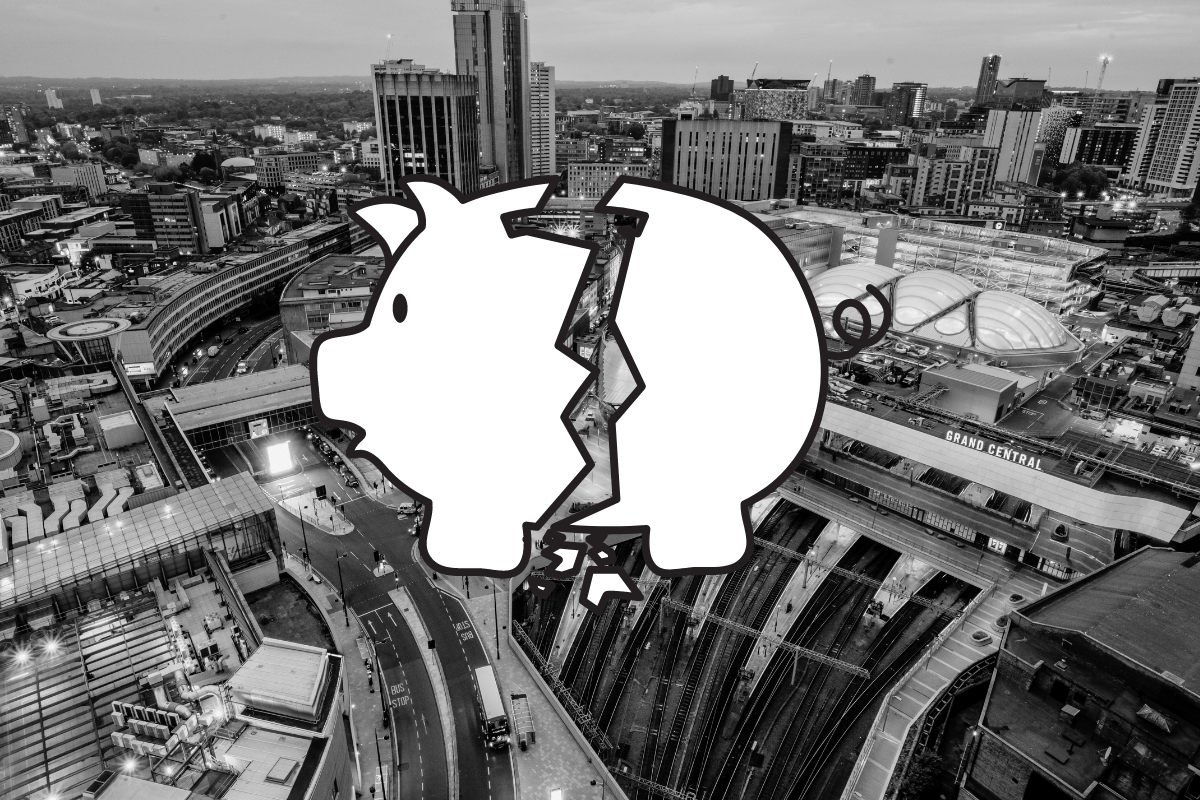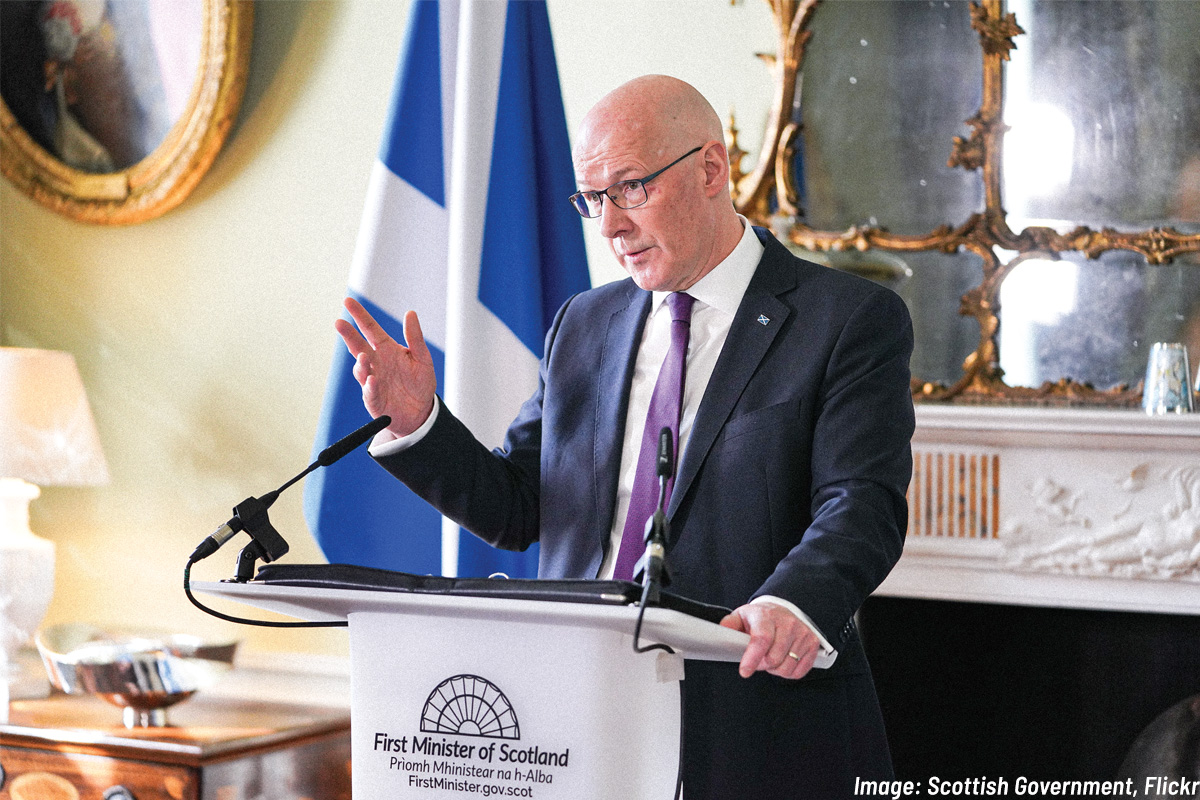The Edinburgh Fringe 2024 is expected to be the largest in the festival’s history, drawing performers and tourists from around the globe.
Behind the scenes, however, there is growing discontent. Impending strike action, due to start on 14 August, is set to disrupt bin collections during the festival for the second time, much to the dismay of those set to cash in on Edinburgh’s time in the limelight.
Local government, desperate to balance its budget like a struggling household, views the festival as a lucrative opportunity to fill its coffers – despite the many direct and indirect costs to residents.
Hotels, landlords, and Airbnb owners are poised to make a fortune, as the influx of visitors drives up accommodation prices. Businesses across the city anticipate booming sales, capitalising on the mass tourism.
Yet hospitality workers and Fringe performers alike will see all but a few scraps of the expected £1 billion to be brought into the Scottish economy.
For many locals, August means avoiding the city centre altogether, especially as rising costs make the festival increasingly inaccessible to Edinburgh’s own residents.
The growing frustration mirrors the anger seen in popular travel destinations such as Barcelona. Locals are increasingly vocal about how mass tourism disrupts their lives, inflates living costs, and transforms their cities into unaffordable tourist traps.

Little effort is made to promote or uphold the origins of the Edinburgh Fringe, or to explain how these can be traced back to the Edinburgh People’s festival.
In 1951, Hamish Henderson, a communist and famous poet, along with others, founded the Edinburgh People’s Festival as a response to the Edinburgh International Festival.
The original festival aimed to celebrate and uplift working-class culture. Though short-lived, it underscored the importance of making culture accessible to everyone. This principle is increasingly at odds with the commercialised reality of today’s Fringe.
We call on the workers and performers of the Fringe to join the RCP and help build a future where culture can be enjoyed by all. Join us in the struggle for a society where art thrives not for profit, but for the enrichment of humanity.
Let us return the Fringe to the people, remembering the brilliance of Scots like Hamish Henderson. As the words of his Freedom Come-All-Ye go:
Nae mair will the bonnie callants
Mairch tae war when oor braggarts crousely craw,
Nor wee weans frae pit-heid and clachan
Mourn the ships sailin’ doon the Broomielaw.
Broken faimlies in lands we’ve herriet,
Will curse Scotland the Brave nae mair, nae mair;
Black and white, ane til ither mairriet,
Mak the vile barracks o’ their maisters bare.
Fifty-hour Fringe
The Edinburgh Fringe Festival creates around 7,000 hospitality jobs each year. Most of these are filled by young people, aged 18-24 years old.
A ‘Fringe job’ is presented as an opportunity to take part in the art and culture of the festival, whilst making money.
This all sounds great. But it is far from the reality facing young workers in Edinburgh.
Many in the hospitality sector dread the Fringe, with its 50-hour work weeks, impatient queues, and poor working conditions.
This doesn’t include the bosses, of course, who rub their hands with glee at the prospect of squeezing more profit out of us!
Many of us in hospitality have artistic talents or interests. We would love to spend the festival soaking up the wealth of culture flooding the city, but we are simply too exhausted.
By the end of this miserable month, the icing on the cake for these young workers is that most of them are left unemployed. In 2018, Edinburgh Council surveyed Fringe hospitality workers and found that 77 percent of them were out of a job by the middle of September.
Every year, the festival draws in crowds matching that of a FIFA World Cup, bringing in millions for the Scottish economy. If it’s not to the workers that keep the well-oiled festival machine running round the clock, then who is this money going to?
Orla Thomas
Seasonal work
With the Fringe Festival comes a sudden rush of seasonal work. Even though there’s more work to go round, this comes with more competition.
It’s my second year as part of this race to the bottom. I have experience as a kitchen porter during the festival. But still, I’ve had to fight tooth and nail to get a low-wage job, so I can pay my rent.
I went through the same process eleven times before I got something. I’d send out my CV – usually with a covering letter that I’d agonised over about how passionate I am about comedy, or cleaning, or checking people’s tickets. Then I’d either get rejected; or I’d get an interview, then get rejected anyway.
Now that I’ve finally got something (selling pies for £10 an hour) my boss has told me that he intentionally hired more people than he needed, so he can let the slowest of us go right before the festival starts.
If it’s me, I probably won’t be able to get anything during the Fringe, because it’ll have started already. I have an overdraft, so I’ll probably just go into debt instead.
What gives me hope is that whatever energy I don’t spend begging to be exploited, I’ll put into fighting to overthrow the system that puts billions of people in this position, and far worse.
Vic Lancaster
Bin workers strike looms large
Scotland will face a new round of bin worker strikes this month.
The decision comes after the latest offer from the Scottish local authority association, COSLA, to increase pay by 3.2 percent, backdated to April.
This was rejected by members of GMB, Unison, and Unite. Not only will this paltry increase fail to offset the skyrocketing cost of living, this offer is also less than the increase offered to English council workers.
For Edinburgh, this could mean a repeat of the scenes that played out at the 2022 Fringe Festival. With the employers refusing to budge, waste and recycling workers across Scotland went on strike, refusing to collect waste and leaving it to rot on the streets.
COSLA protest that they have no more money to spend, due to the austerity measures implemented by the Scottish government. In turn, Holyrood’s own pleas to Westminster for some extra cash – in order to avoid strikes such as these – have fallen on deaf ears.
Learning from their last encounters with COSLA in 2022 and 2023, when the Scottish government was forced to concede, the unions have already taken a firm stance.
Waste and recycling workers are not alone in their struggle. Budget cuts are in place across the board, with Unison currently balloting some 38,000 school and family centre staff across Scotland over potential strike action.
But the Fringe Festival and its two million visitors brings in billions. Where does this money go, if it’s not even enough to pay the workers that keep the city clean?
Obvious Mbambo
Edinburgh council asks residents to choose their poison

Within five years, Edinburgh City Council’s budget deficit is projected to quadruple to £600 million. In response, in a disgusting abdication of responsibility, Edinburgh Council has opened an online survey asking residents to choose which essential public services should be slashed!
These surveys – forcing workers to choose between death by hanging or by firing squad – are all the council can offer as a plan to mitigate this looming disaster.
Instead of representing the needs of the people, and campaigning to oppose cuts, ‘our’ elected officials are passing the buck and telling us to pick our poison.
They won’t fight against austerity. And now they won’t even take the ‘tough decisions’ that every establishment politician cynically uses to justify their careers and their attacks on workers, the poor, and the vulnerable. So what are they good for?
Edinburgh’s working class is being coerced into making these impossible choices that councillors can’t be bothered with.
Edinburgh is only one of many localities across Britain that is facing bankruptcy. Others include Glasgow, Birmingham, Hackney and Northamptonshire.
These council crooks have squandered everything – and they expect us to clean up the mess!
Under the guise of democratic participation, Edinburgh Council’s decision is a thinly-veiled attempt to deflect blame from their own mismanagement, and from the relentless austerity measures imposed by the ruling class and its representatives.
The council is pitting workers against each other in a battle for crumbs; trying to divide the working class and obscure the root cause of the budget shortfalls: the prioritisation of profit over public welfare.
In this scramble over scarcity, the working class can only lose. No matter how people vote, these cuts will deepen social inequalities and entrench poverty.
We must not get disheartened by the actions of these money scroungers. Instead, we must stand together and refuse to take this lying down. We must fight a battle on our own terms – against the capitalist class and their failed system.
Cian Beattie and Rhys McPhail






